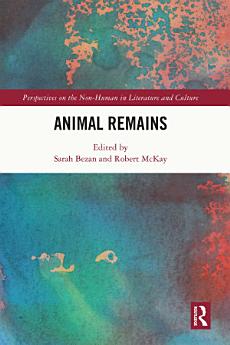Animal Remains
Tungkol sa ebook na ito
To make sense of the material afterlives of animals, this book draws together multispecies perspectives from literary criticism and theory, cultural studies, anthropology and ethnography, photographic and film history, and contemporary art practice to offer the first synoptic account of animal remains. Interpreting them in all their ubiquity, diversity, and persistence, Animal Remains reveals posthuman relations between human and non-human communities of the living and the dead, on timescales of decades, centuries, and millennia.
Tungkol sa may-akda
Sarah Bezan is Postdoctoral Research Associate in Perceptions of Biodiversity Change at The University of York’s Leverhulme Centre for Anthropocene Biodiversity in the UK. Her research focuses on the entangled social and ecological dimensions of species loss and revival in contemporary British, North American, and Australian literature and visual culture. She is currently at work on two book projects: Dead Darwin: Necro-Ecologies in Neo-Victorian Culture (under advance contract with Manchester University Press), along with a second monograph (in progress) that examines species revivalist representations of the woolly mammoth, great auk, dodo, Steller’s sea cow, thylacine, and Pinta Island tortoise.
Robert McKay is Professor of Contemporary Literature at the University of Sheffield, where he is Co-director of the Sheffield Animal Studies Research Centre. He has published widely on the politics of species in modern and contemporary literature and film, including the co-edited volumes The Palgrave Handbook of Animals and Literature (Palgrave, 2021) and Werewolves, Wolves and the Gothic (Wales UP, 2017). He is series Co-editor for Palgrave Studies in Animals and Literature and Associate Editor (Literature) for Society & Animals.




